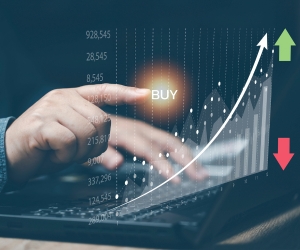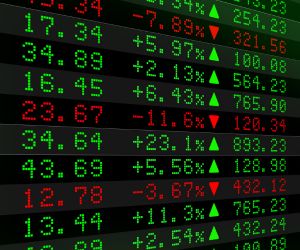Exxon Mobil is a global leader in the oil and gas industry, known for its extensive exploration, production, and refining operations. It trades on the New York Stock Exchange (NYSE), a key market for the giants of the energy sector. Is it a good investment then? Are there ups and downs? What investment strategy should I use with the stock? This article will answer these questions and more.

Steps to Invest in Exxon Mobil
Research and Analysis:
Exxon Mobil is one of the largest energy companies in the world, with operations in exploration, production, refining, and marketing of oil and natural gas. Its performance is highly tied to crude prices and global energy demand. Before investing in XOM, review its cash flow generation, capital expenditures on new explorations, and its ability to maintain dividends even during low price cycles.Opening an Investment Account:
Exxon Mobil shares (XOM) trade on the NYSE. To invest, you need an account with a brokerage with access to the U.S. market. Some brokers allow the purchase of fractional shares, facilitating investment in large-cap companies. Compare the fees, trading platforms, and service offered by each brokerage to choose the one that best suits your needs.Define the Investment Strategy:
Exxon Mobil is a cyclical stock, whose performance depends on fluctuations in oil and gas prices. It can be attractive for long-term investors interested in dividends, as Exxon is known for its record of consistent payouts. It is also used in short-term trading, especially during periods of oil volatility.Execution and Monitoring:
Exxon tends to benefit during periods of rising crude prices and growing demand for fossil fuels. It is key to monitor indicators such as Brent and WTI prices, OPEC production reports, changes in global energy policy, and regulations on fossil fuels and the transition to renewable energies.Portfolio Diversification:
To mitigate risks, you can diversify with other oil companies like Chevron (CVX), Shell (SHEL), or BP (BP). You can also consider energy sector ETFs, like the Energy Select Sector SPDR Fund (XLE), which offers diversified exposure to major energy companies.
SWOT Analysis of Exxon Mobil as an Investment
Exxon Mobil is one of the largest oil and gas companies globally. This SWOT analysis identifies the internal and external factors that influence its position in the energy sector.
Strengths:
Global scale: Exxon Mobil operates in different regions, allowing it to diversify geographical risks and take advantage of exploration and production opportunities.
Extensive vertical integration: It controls operations from exploration to refining and distribution, optimizing costs and processes.
Strong financial position: Its size and track record provide the capacity to finance large-scale projects and withstand price cycles.
Weaknesses:
Dependence on fossil fuels: The transition to renewable energies can affect oil and gas demand in the long term.
Exposure to price volatility: Profitability is subject to fluctuations in international crude and gas markets.
Environmental risks: The industry faces regulatory pressures and public opinion due to its impact on climate change.
Opportunities:
Innovation in clean technologies: Investment in carbon capture and cleaner energy solutions can open new business lines and improve corporate image.
Expansion in emerging markets: The growing energy demand in regions of Asia and Africa offers growth opportunities.
Strategic alliances: Collaborating with technology and energy companies can enhance efficiency and diversify its portfolio.
Threats:
Global energy transition: The adoption of renewable sources and the rise of electric vehicles may reduce fossil fuel demand.
Regulatory risks: Stricter policies on emissions and exploration may limit production and increase costs.
Fluctuations in supply and demand: Geopolitical crises or sudden changes in production from other countries can alter oil and gas prices.
What is an International Stock Broker?
An International Stock Broker is the entity (or platform) that allows you to buy and sell shares of companies listed on stock exchanges in different countries around the world. Unlike a local brokerage firm, the primary focus of International Brokers is to offer access to global markets, such as the United States, Europe, or Asia.
Why do we need an International Stock Broker?
Investing in international stocks can be an excellent way to diversify your portfolio, as it provides the opportunity to participate in the growth of economies and sectors worldwide. However, operating in global markets is not as straightforward as in the local market: it requires specific knowledge, compliance with international regulations, and the use of advanced trading platforms.
An International Stock Broker brings all these investment opportunities together in one place and allows you to access different exchanges and trading conditions, in exchange for a commission.
Examples and comparisons:
There are several well-known International Stock Brokers, such as Interactive Brokers, eToro, TD Ameritrade, or Saxo Bank, among others. Each offers trading platforms with specific features and commissions that vary depending on the service. Some stand out for providing market advisory and analysis in multiple languages, while others may offer more competitive operating costs or social investment tools. These details allow you to choose the option that best suits your needs and investor profile.
Regulatory and security aspects
It is essential that the International Stock Broker you choose is regulated by recognized entities in the country where it operates, such as the U.S. Securities and Exchange Commission (SEC) in the United States, the Financial Conduct Authority (FCA) in the United Kingdom, or the Comissão de Valores Mobiliários (CVM) in Brazil, among others. This oversight ensures that the broker complies with strict security and transparency standards, providing you with greater confidence when investing your money.
How do Brokers “connect” to International Markets?
Through agreements with foreign stock exchanges and the use of advanced technological platforms, International Stock Brokers process buy and sell orders placed by their clients. They arrange transactions according to price, order arrival, and other parameters, charging a commission when the transaction is executed. This technological infrastructure allows operations to be carried out quickly and securely, facilitating real-time tracking of your investments.
In conclusion, an International Stock Broker is your gateway to the most important stock markets in the world. Thanks to its regulation, trading platforms, and knowledge of global markets, you can diversify your portfolio and seek growth opportunities in different sectors and countries.





